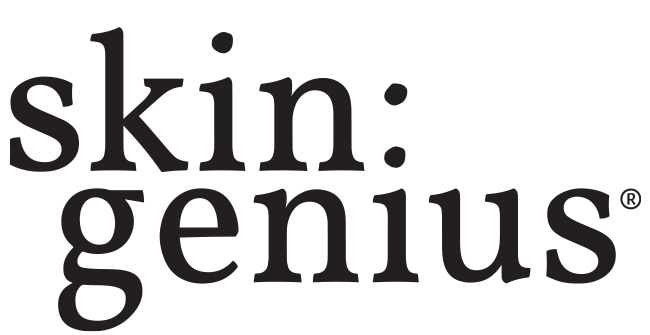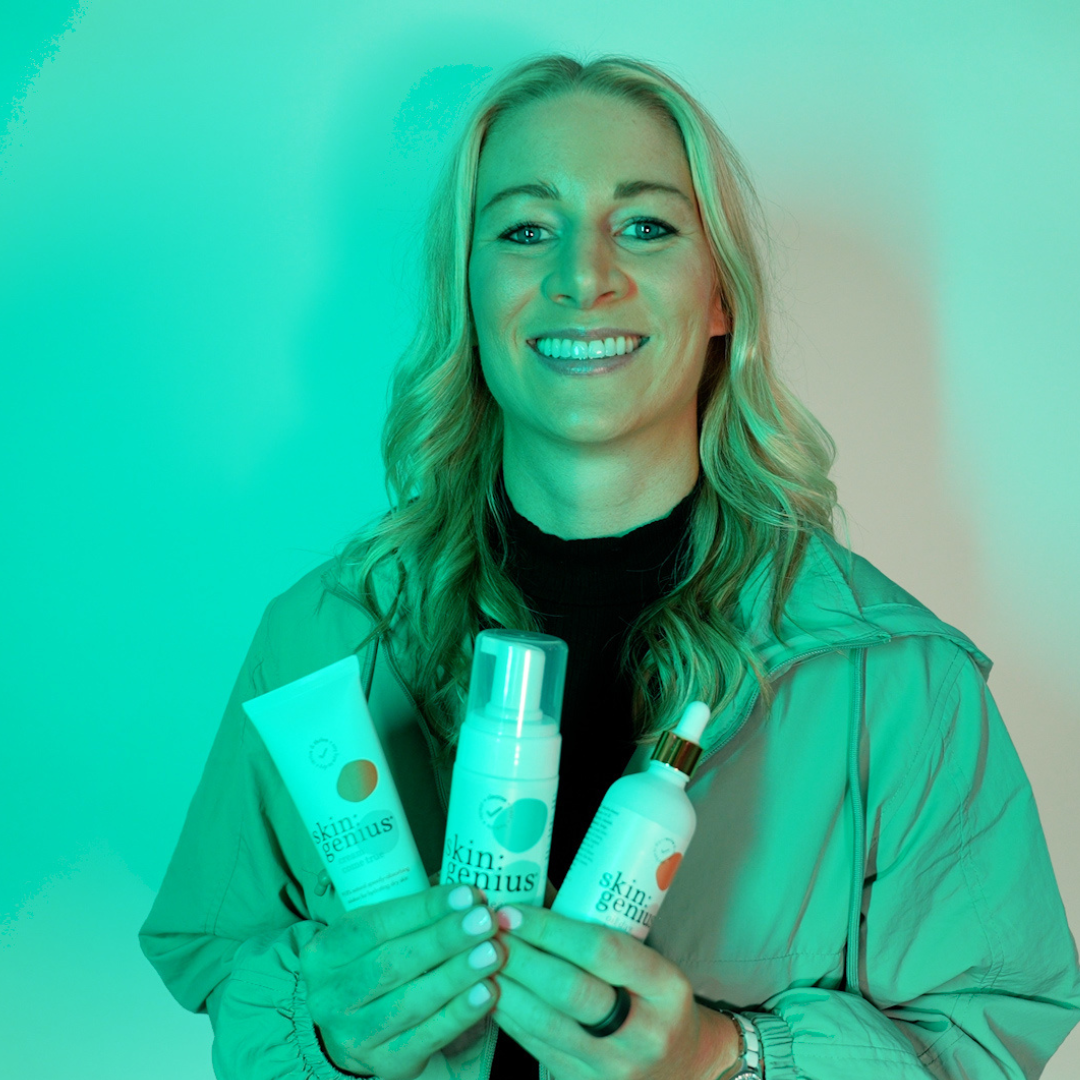
In Christine's last blog, she looked at particular foods that can help nourish and promote healthy skin from within. Now, she takes a closer look at specific nutrients that play a role in keeping your skin clear and healthy.
Nutrients that Feed Your Skin from Within
For certain skin conditions, there are particular nutrients you may wish to consider. You can find many of these from food but may need to source some in supplement form. This is not an exhaustive list so do check with a qualified health care practitioner if you have a particular skin concern, so they can suggest the best nutrients and supplements for your needs.
Collagen
Collagen is the most abundant type of protein in your body and makes up the bulk of your skin, but as early as our 20s the amount we produce declines. By the time we get to 40, we will have lost around a third of our collagen and the wrinkles and sagging become more obvious. Taking collagen peptide supplements have been found to stimulate the production of more collagen improving skin elasticity, hydration and collagen density. As collagen is a protein, it is equally important to check you are consuming sufficient amounts spread throughout the day too.
Vitamin A and Carotenoids
Vitamin A influences nearly every aspect of skin function. It promotes cell

turnover, thickens and stimulates the dermis, inhibits sebaceous gland activity and suppresses androgen formation, making it effective for both acne and anti-ageing. It’s good for dry skin too. Good food sources of vitamin A include oily fish and organ meats. Carotenoids are vitamin A derivates like β-carotene, astaxanthin, lycopene and retinol, which are all highly effective antioxidants for skin protection and have been documented to possess photoprotective properties. Carrots, pumpkin, sweet potatoes, mangos and papaya are some examples of fruits and vegetables containing β-carotene.
Vitamin D
Several studies suggest vitamin D can protect the skin from UVB-induced skin damage and may help prevent skin cancer. Vitamin D3 also supports the production of an antimicrobial peptide genes in human skin meaning it can help to reduce skin infections. As we age, the capacity of the skin to produce vitamin D3 declines and consequently the protective effects of the vitamin. Studies suggest there may be a link between vitamin D levels and skin ageing. You can check your vitamin D levels with blood tests but supplementation through the winter is recommended by the Government. You can get some vitamin D in certain foods although this is limited (eg oily fish, eggs, fortified foods, mushrooms).
Essential fatty acids (EFA)
Essential fatty acids have many vital jobs in the body and are also critical for a healthy skin barrier. Essential fats including flaxseed and fish oil reduce inflammation, improve hydration, skin texture and may help reduce skin breakouts. Find them in oily fish (salmon, sardines, mackerel etc) walnuts, flaxseed oil and chia seeds.
Vitamin C
Vitamin C is a powerful antioxidant that helps prevent and treat UV-induced photo damage. Supplementation can boost your skin’s appearance, reduce wrinkles and decrease the risk of dry skin. It regulates collagen production and can increase collagen protein synthesis for better skin repair. For this reason, you’ll often find it added to skin creams. Foods high in vitamin C include citrus fruits, Kiwi fruits, red peppers and berries.
Hyaluronic acid
Like vitamin C, hyaluronic acid (HA) helps your skin by supporting moisture retention and healthy collagen production. It’s also commonly added to beauty products but can also be taken orally to help with the appearance of your skin and hydration.
Probiotics
Supporting the health of your microbiome is important for overall health and the appearance of your skin. There’s a close relationship between the type of healthy bacteria in your gut and the health of your skin. Probiotic rich foods can be helpful in supporting a healthy gut microbiome so try and consume fermented foods daily like plain yogurt, kefir, sauerkraut and kimchi and / or consider taking probiotic supplements. Remember, for a healthy microbiome, you need to ensure sufficient fibre in your diet too.
Glutathione
Glutathione is a powerful antioxidant which helps protect our skin from damage and support detoxification pathways. Supplementation has been shown to aid various skin conditions like eczema, urticaria and skin pigmentation. It may also improve skin elasticity and reduce the signs of ageing. Readily available as a liquid supplement or in capsules, supplements of N acetyl cysteine (NAC) can also support the production of glutathione in the body. Food sources of glutathione are spinach, avocados and asparagus but it’s not always well absorbed by the body. For that reason, you may wish to take a glutathione supplement.
Discover Christine's advice, blogs and more specifically written to benefit your skin from within and make you feel good too.
READ MORE
References
Al-Atif H. Collagen Supplements for Aging and Wrinkles: A Paradigm Shift in the Fields of Dermatology and Cosmetics. Dermatol Pract Concept. 2022 Jan 1;12(1):e2022018. doi: 10.5826/dpc.1201a18. PMID: 35223163; PMCID: PMC8824545.
Bolke L, Schlippe G, Gerß J, Voss W. A Collagen Supplement Improves Skin Hydration, Elasticity, Roughness, and Density: Results of a Randomized, Placebo-Controlled, Blind Study. Nutrients. 2019 Oct 17;11(10):2494. doi: 10.3390/nu11102494. PMID: 31627309; PMCID: PMC6835901.
Chang AL, Fu T, Amir O, Tang JY. Association of facial skin aging and vitamin D levels in middle-aged white women. Cancer Causes Control. 2010;21:2315–6. doi: 10.1007/s10552-010-9646-y.
Cheman A., Rakowski E.M., Chou V., Chhatriwala A., Ross J., Jacob S.E. Balsam of Peru: Past and future. Dermatitis. 2013;24:153–160. doi: 10.1097/DER.0b013e31828afab2.
Chen Y.J., Lee W.H., Ho H.J., Tseng C.H., Wu C.Y. An altered fecal microbial profiling in rosacea patients compared to matched controls. J. Formos. Med. Assoc. 2020;120:256–264. doi: 10.1016/j.jfma.2020.04.034.
Cho BA, Yoo S-K, Seo J-S. Signatures of photo-aging and intrinsic aging in skin were revealed by transcriptome network analysis. Aging (Albany NY) 2018;10(7):1609–1626. doi: 10.18632/aging.101496
Glossmann H, Vitamin D. Vitamin D, UV, and skin cancer in the elderly: to expose or not to expose? Gerontology. 2011;57:350–3. doi: 10.1159/000322521.
Guéniche A, Philippe D, Bastien P, Blum S, Buyukpamukcu E, Castiel-Higounenc I. Probiotics for photoprotection. Dermatoendocrinol. 2009;1:275–9. doi: 10.4161/derm.1.5.9849.
Kalkan G, Seçkin HY, Duygu F, Akbaş A, Ozyurt H, Sahin M. Oxidative stress status in patients with acute urticaria. Cutan Ocul Toxicol. 2014 Jun;33(2):109-14. doi: 10.3109/15569527.2013.808658. Epub 2013 Jul 10. PMID: 23841807.
Schagen SK, Zampeli VA, Makrantonaki E, Zouboulis CC. Discovering the link between nutrition and skin aging. Dermatoendocrinol. 2012 Jul 1;4(3):298-307. doi: 10.4161/derm.22876. PMID: 23467449; PMCID: PMC3583891.
Wang FY, Chi CC. Rosacea, Germs, and Bowels: A Review on Gastrointestinal Comorbidities and Gut-Skin Axis of Rosacea. Adv Ther. 2021 Mar;38(3):1415-1424. doi: 10.1007/s12325-021-01624-x. Epub 2021 Jan 28. PMID: 33507499; PMCID: PMC7932979.
Woo Y.R., Lee S.H., Cho S.H., Lee J.D., Kim H.S. Characterization and Analysis of the Skin Microbiota in Rosacea: Impact of Systemic Antibiotics. J. Clin. Med. 2020;9:185. doi: 10.3390/jcm9010185
Zeichner JA, Baldwin HE, Cook-Bolden FE, Eichenfield LF, Fallon-Friedlander S, Rodriguez DA. Emerging Issues in Adult Female Acne. J Clin Aesthet Dermatol. 2017;10(1):37-46.


